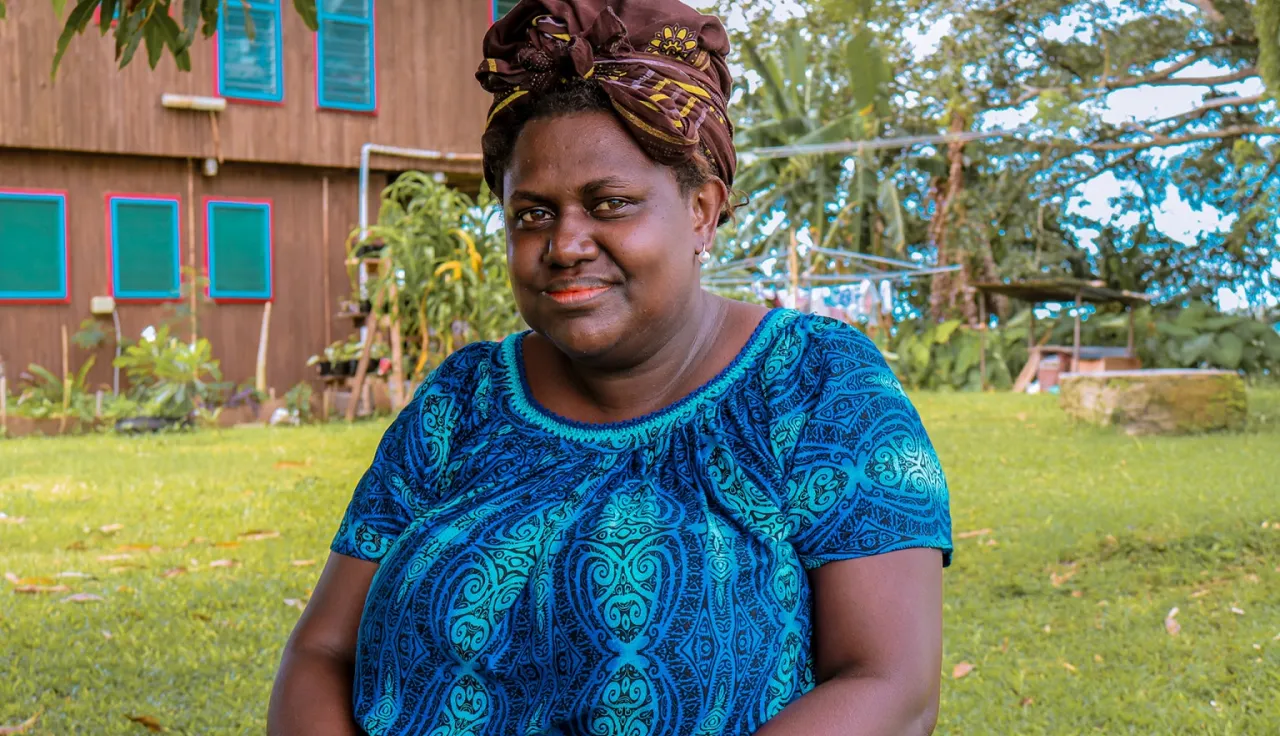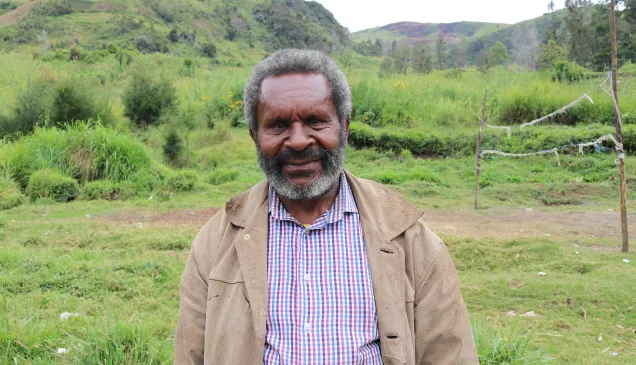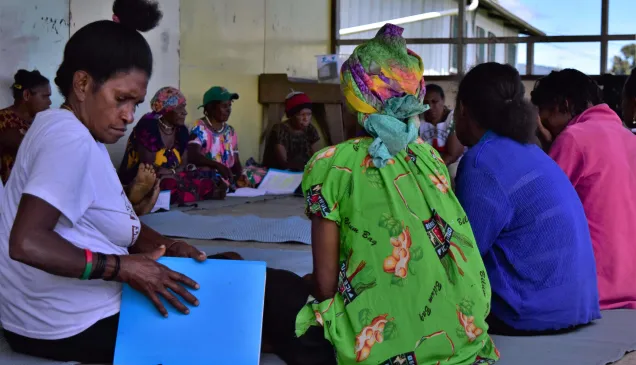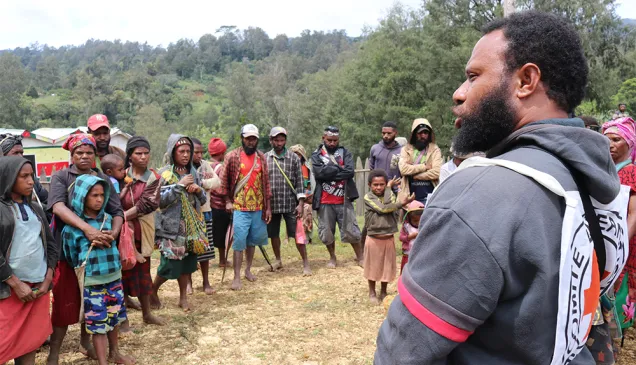Papua New Guinea: Finding closure after two decades of searching for a missing father

Theonila Roka-Matbob was born amidst the unfolding Bougainville Crisis in 1988. Her vivid recollections centre around 1993, when she was just three years old, marking the final moments shared with her father before his sudden disappearance.
"I was only three, but I remember him carrying me and walking around the house. I will always remember the hymn that he sang. I knew that was the last time spent with me. He threw me onto the lawn just before he was taken away. That was the last time I saw him," she said with tears in her eyes.
As the hours stretched on, her older siblings clung to the hope of his return, a hope that was never realized. Only their mother returned that fateful afternoon, carrying with her the weight of untold truths.
"Mom bore witness to something when they took Dad, something she couldn't bring herself to share with us. She was devastated when she returned home that afternoon," Theonila revealed, the pain still vivid after all these years.
Even after he was taken away, her elder sisters clung to the image of their father's return. They wondered why their mother was crying because they kept seeing their father returning and washing his feet outside the house. Was it truly him or his spirit? The uncertainty played tricks on their hearts and minds.
The uncertainty surrounding the fate and location of a beloved family member can take an immense toll on the emotional health of families. This lingering question often drives them on a lifelong quest for closure, leading to a sense of detachment from their social circles and emotional turmoil. Children, in particular, bear a heavy brunt, grappling not only with the absence itself but also the shifts in family dynamics that follow.
A life of uncertainty
"There is no proper way to describe the hatred I had and the period of growing up without any form of closure. It was a completely unbearable experience. Mum did not want to raise our hopes, so she kept most of the information to herself because she feared the impact of giving us the wrong story. Every time we asked her about it, she would break down and cry. The uncertainty went on for some time," Theonila said.
We were not allowed to know Dad's fate and the whereabouts of his remains until 1999 when we were told about where he was buried. We were only told that his body was wrapped in a small blue canvas and was buried. Mum always thought Dad's body was dumped in a river. That was all my elder brothers and sisters knew back then. The pain was so excruciating. I don't know what it feels like to walk next to a father.
Theonila's family could not access the area where their father was said to be buried because there was still an arms trade in that community at that time. After the signing of the Bougainville Peace Agreement in 2001, they were able to access the site, but they could not be sure of where he was lying because other people were buried in that area as well.
Considered studying law
Before going to university, she considered becoming a lawyer and ensuring that those responsible for her father's death were dealt with by the law.
"My mum's uncle, who was someone leading the establishment of the Autonomous Bougainville Government, urged me to forgive. But that was easier said than done," Theonila said.
"Ending up at Divine Word University and taking up Social and Religious Studies was something I clearly did not like. But when I was studying the course and understanding psychology, I decided to turn things around. The impact of Dad's absence took a toll on us, and my elder siblings could not do anything to change our situation, so I decided to step up and take the lead."
Theonila saw that a crucial step toward her family finding closure and healing was to locate her father's remains. She spoke with her siblings about the importance of forgiveness, finding peace, and healing. Her siblings resented her proposal, but she was determined to go ahead with it.
"I began to connect the dots and gather information from people about my father's death and burial," she said.
Theonila almost gave up her effort to find answers and heal when she learned about the explicit details of her father's death, but she decided to keep some details to herself to help her siblings heal.
"I decided to be positive and kept on telling my siblings about how important it was for us to reconcile, heal, and move on. I told them that there was no turning back, we must go through with the process. We started tracing Dad's steps back."
Theonila said even though those responsible for her father's death were not willing to face her family, she insisted on going through with the reconciliation process.
I told them that my family was tired of living in pain. I told them that even if they do not want to forgive us, we want to release them. So, it turned out to be more a process of releasing them for the purpose of freeing ourselves rather than reconciling.
Eventually, after 22 years, Theonila's father's remains were exhumed.
"After going through so much for many years, I found closure at that moment. I am stronger than I was. I have realized that in life, people can hurt you in many ways, but it is important that you allow yourself to heal and find closure."
"There are so many people in Bougainville that need to find closure and heal from the pain. The establishment of the Office of the Missing in Bougainville with the guidance of the International Committee of the Red Cross is crucial for this to happen. If there are thousands of missing persons from all sides of the Bougainville Crisis, just imagine the number of affected individuals and families. The impact of missing persons on families is not only an issue in Bougainville but there are also families in Papua New Guinea who are affected."
Theonila is married with two children and serves as a Member for the Ioro Constituency in the Autonomous Bougainville Government's House of Representatives.
ICRC's work with families of missing persons in Bougainville
The ICRC has been engaged since 2014 in a variety of activities to address the issue of persons who went missing during the Bougainville Crisis.
- The ICRC has conducted a Family Needs Assessment to gain a better understanding of the missing persons' issues in Bougainville and contextualize the family needs. In addition, ICRC has organized awareness workshops on the missing.
- The ICRC has promoted and financially contributed to the organization of Sea Burial ceremonies, the erection of memorial monuments, and other annual events on the International Day of the Disappeared.
- The ICRC promotes awareness and encourages dialogue and cooperation among all stakeholders involved, fostering an inclusive and participatory approach to addressing the issue of missing persons in Bougainville.
- The ICRC supported families of the missing, joining the International Conference for Families of the Missing, which brought together families representing 35 regions around the world to share and learn from each other and advocate for a better response for their needs.
- The ICRC encouraged and provided technical support to authorities in Bougainville to adopt the Missing Persons Policy, most recently in 2023.
- The ICRC has been reaffirming its commitment and readiness, to both Papua New Guinea and Bougainville governments, to act as a neutral intermediary, where required, for the establishment of a national mechanism for missing persons to ensure all families affected receive answers to the full extent possible.
- The ICRC works closely with the authorities, families of the missing, veterans, communities, and relevant stakeholders to provide guidance and tools required to strengthen institutional capacities to respond to missing persons cases.



